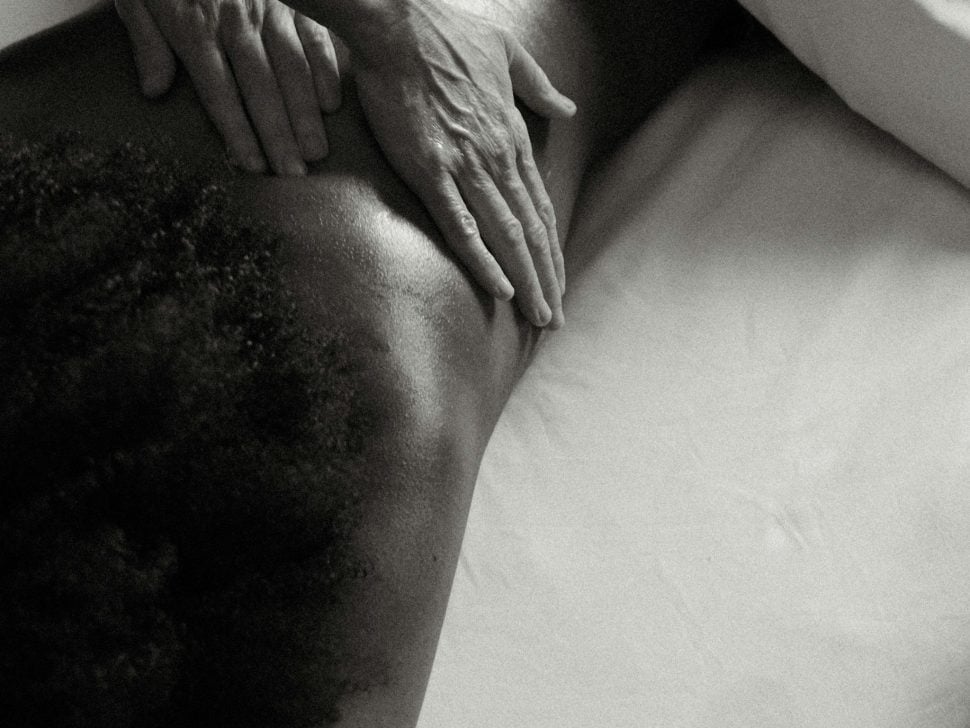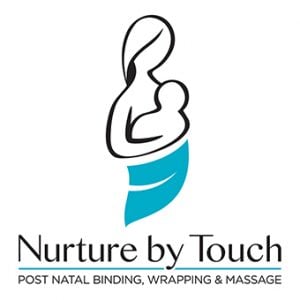Jamu Postnatal Massage: The Nurturing Tradition Every New Mother Should Experience For Deep Recovery
Interview with Jackie from Nurture by Touch
Please share with us some information on the practice of Jamu Massage.
Jamu massage is a traditional Indonesian practice that is part of an ancient lineage of postpartum care, honouring the traditions of Jamu. The Jamu massage is one of many elements performed on a mother post-birth. It supports a mother’s physical and emotional well-being after birthing. It’s an integration of Swedish techniques towards the heart, Indian away from the heart, Reflexology, Manual Lymphatic Drainage and specific Jamu techniques handed down by my teachers
How does a Jamu massage support a mother’s physical recovery after childbirth?
The massage aids in the removal of lochia and supports the involution / repositioning of the uterus into the pelvic floor of a mother. It improves blood circulation, aids in reducing oedema and bloating, assist in bowel movements, activates a very important system – the lymphatic circulation, supports the function of the liver, gallbladder, spleen and kidneys, helps a mother relax after birth focusing on the sympathetic and parasympathetic nervous systems, and lastly, supports lactation through reducing cortisol and supports the balance of a variety of important hormones in a mother post birth.
The herbs I work with are two varieties placed on the abdominal region focused on the digestive area and above the uterine region. The herbs keep a mother’s abdominal region warm, expelling wind and gas, assisting with bowel movements, and increasing the blood and lymphatic systems.
The wrapping phases have several benefits focusing on – uterus involution, support of the pelvic floor, bringing the organs back down into position, assists with the healing of diastasis recti / abdominal separation, the removal of residual lochia, supporting the lower rib cage that has opened, bringing in the oblique muscles, supporting her lower back and core, bringing the body back into position, helps and assists the body through breastfeeding, kicks the bowel movements into gear, expels wind and gas, reduces inflammation, to name a few.
Many mothers experience postnatal body aches, swelling and physical discomfort – how does Jamu care address these discomforts?
Through effective daily massage, herbal application, and belly binding, while I’m with a mother for 2-4 weeks, she has to continue prioritising resting, hydrating, eating highly warm, nutritionally digestible postpartum food, sleeping, breastfeeding (if this is to be her journey), not going outside, and not receiving too many guests, if any at all, other than her immediate support tribe.
How does the daily presence of a practitioner contribute to a mother’s sense of security and confidence?
Being there for her daily, except weekends, across 2-4 weeks, helps regulate a mother’s central nervous system, mainly if birth trauma is present, maternal anxiety or perinatal/postpartum depression is present. Daily touch and care have an immediate effect with the support of regulating important hormones in her body and being able to talk about any issues.
What subtle emotional or mental shifts do mothers experience after receiving consistent Jamu care?
This is truly special to witness; it’s a real privilege. As I’m within the sanctuary of the family’s home for up to 4 weeks, you subtly and gratefully become part of the furniture, quietly and respectfully. So as the days pass through this ancient lineage of care, you see things shift physically, which is pure biology to me, but also her smile changes as you walk through the door, her eyes are more vibrant and her skin colour changes. The puffiness in the face and under the eyes, around important lymph nodes, begins to settle, and as a Jamu Practitioner, you can see, feel, and sense vital organs are kicking in, predominantly the kidneys. We refer to this as the kidney lifeforce Qi / in TCM Yin and Yang / in Ayurvedic traditions the 3 Doshas.
In today’s fast-paced world, many mothers are expected to “bounce back” quickly. How does Jamu’s postpartum care challenge this mindset?
When I founded this business eight years ago, I expected my clients to be primarily Malay, Singaporean, Indonesian, and mainland Chinese. However, three years later, I noticed a shift as Western mothers began to recognise the importance of slowing down and honouring their post-birth recovery. Over the years, society and a fast-paced modern world have expected a woman to be the hunter, gatherer and nurturer, physically bounce back, get back to work and cope with whatever is thrown her way. Slowly, we are beginning to understand that it’s a small chapter in our lives that requires honouring before we venture out into the world again and achieve what we would like to. What we do during the postpartum phase sets us up for what I call the 5th and last Trimester / Menopause, which I am navigating now.
What are some misconceptions about postpartum recovery that Jamu care helps to dispel?
- The misconception that recovery only takes a few weeks. There are so many different factors at play. Your pregnancy, your overall health at conception, your birth experience, vaginal birth vs a caesarian birth, intervention that caused damage,e natural tears vs episiotomy, haemorrhoids, drugs, pubic symphysis, pelvic floor damage, a variety of prolapses, to name a few. These are physical elements but the emotional and mental elements are much deeper. The rule of thumb is that we stay physically postpartum for about 12 months. As for postpartum in general …….. For the rest of our lives. Every single mother I have had the privilege to care for, has healed in the time that it needs to take for her, based on so many different factors.
- The thought that bellybinding is just for looks/aesthetics. Over the years, I’ve had a few mothers call me for the care from the soul focus of ‘I want you to get my body back to pre-pregnancy.’ This does not exist ….. We birth a new rib cage alignment and pelvis after each baby. It’s not for slimming down or narrowing the waist. However, it certainly supports it through the healing stages of 4th Trimester Jamu Postpartum Care.
- That postpartum depression is just baby blues. Knowing, seeing and feeling the differences when caring for a mother is important.
- Jamu will help a mother breastfeed instinctively and easily. Yes, it certainly supports the process, but factors can affect a mother’s ability to breastfeed physiologically, emotionally, and mentally.
- Lastly, Jamu lets you rest too long, making you weak and slowing your integration into this modern, fast-paced world. This world is very unaligned at the moment, particularly with regard to our ‘village’ being close to us from a support foundation. Society has dictated, for whatever reason, that you should get on with it. This is by no means the case at all.
How does this practice encourage rest and deep nourishment, which modern postpartum care often overlooks?
Being cared for helps you slow down. Touching and honouring a mother’s body post-birth helps her slow down. This practice gives me the ability to help her and recognise aspects of birthing that affect her mentally and emotionally. It also allows me to reach out to my greater tribe as a Practitioner if the scope of care is beyond me and deeper work and specific Practitioners are required.
How does a mother’s well-being impact her baby’s adjustment to life outside the womb and support the mother-baby bond?
When a mother is cared for and her environment is healthy and supported, the mother-baby dyad of connection is strengthened. This is where our babies learn safety, love, care and trust – those first 2 years lay these very important foundations in their lives not only neurologically but emotionally and mentally too.
How does honoring postpartum traditions help rebuild the “village” of support many modern mothers lack?
This modern faced paced world with family members living in all parts of the world has contributed to the ‘village’ being broken down. So it’s important to look at how we can build a new tribe if our immediate family members are not close by. Some of this could be close friends, a postpartum meal delivery system, bodywork of care, specific counselling, women’s circles, healthy connected mother’s groups, to name a few. We have to build a sense of community and connection. Many modern women lack this due to social isolation, a change in the nuclear family as it was known, and global cultural shifts, so we need to look at adapting to this change and put different support systems in place for a Mother. So let’s encourage communal care, advocate innate traditions and foster a sense of rest and recovery as being so ok. We need to improve our understanding of the mental health struggles that mothers face. It’s essential to rebuild and nurture intergenerational knowledge from our families and cultural traditions of bodywork, adapting these practices to the modern world. We should also prioritize rituals of care, rest, nourishment, and healing during the postpartum phase.
What wisdom from Jamu postpartum care do you wish more mothers knew and embraced?
Excellent question. I wish mothers would understand that it is SO OK to rest. That’s why I call it the 4th trimester and not the ancient lineage word ‘confinement’; this word in our modern world is misunderstood. Innate traditions/lineages of care are filled with wisdom and a rich history of care for a reason. These principles should not be lost at all costs but rather integrated and adapted into our modern world so that mothers can be cared for not only physically but emotionally and mentally, fostering a holistic approach to their recovery process.
What is it you love most about your work caring for mothers with this nurturing and supportive practice?
Gosh this is hard to answer. So many reasons.
Firstly, it’s an absolute privilege being there for her and her family during the most vulnerable chapter of our lives, I feel, giving birth and becoming parents. It’s the toughest role we will ever embark on.
Watching her body heal physically across the month is amazing.
Holding space for birth traumas, maternal anxiety and postpartum depression is an honour.
Being part of the bigger picture in her recovery is also an honour.
Honouring this ancient lineage of care, my teachers in Singapore and Indonesia.
Honouring my birth and elements as a woman and mother through this care.
Being exposed to so many different cultures, religions and family traditions across Sydney these past 8 years.
And on a very personal note, the deep sense of peace and healing it has given to my own life / trauma / PTSD
Find out more about how Jackie from Nurture by Touch can support you in your postpartum journey here.
Learn about the support you didn’t know you needed.
We have cherry picked the most useful resources for you, so that you don’t have to waste precious hours searching.
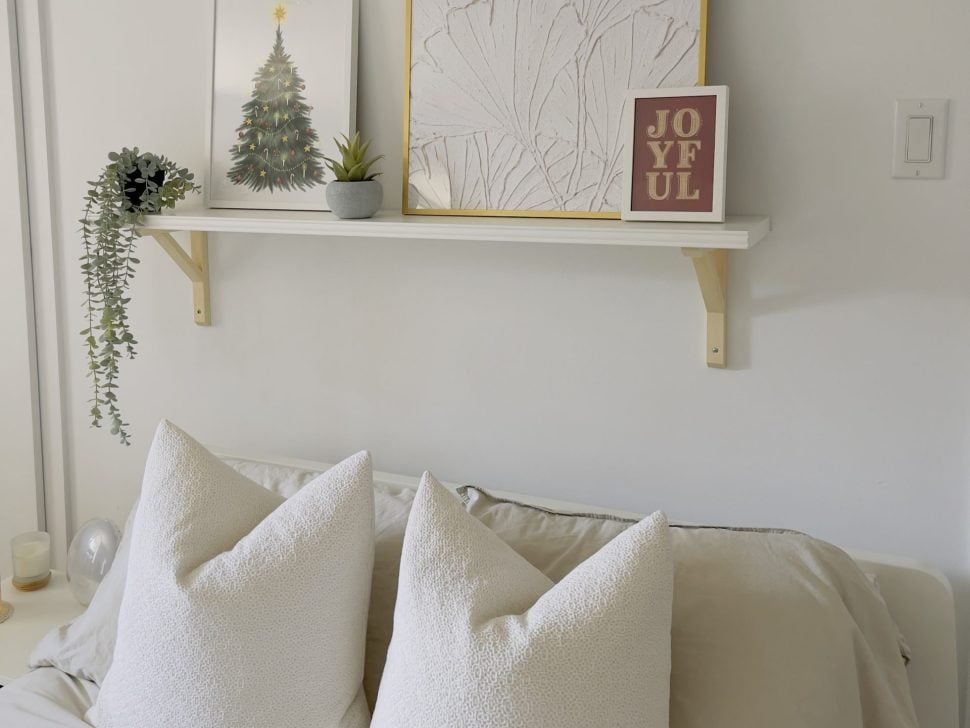
Article - Louise Barton + Elisha Wildblood (Not Another Onesie)
End-of-Year Reflection Guide for Mums (Free Journal Prompts + Playlist)
The end of the year can feel like a whirlwind, especially for pregnant and postpartum mothers. While the world speeds up with celebrations, to-do lists, family dynamics, and pressure to “make it magical,” many mums quietly feel stretched thin, overwhelmed, or emotionally pulled in a dozen directions. If this resonates, you’re not alone. This gentle guide is here to help you slow down, take a breath, and soften into a kinder ending. A moment to honour the year you lived, the glimmers that kept you going, and the version of you that is emerging.
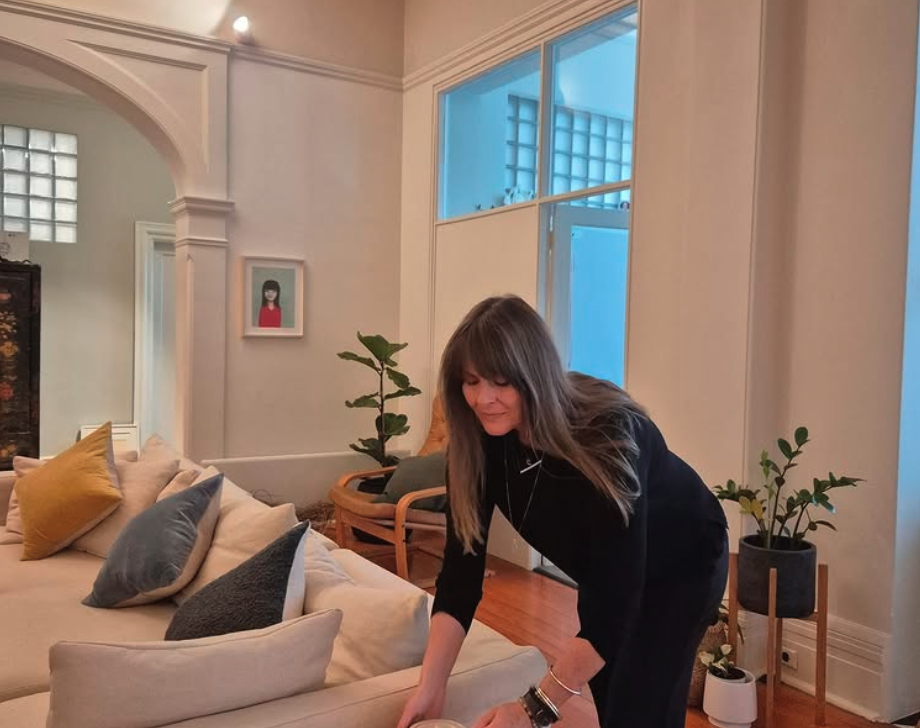
Article - Kendra Greig (The Homecoming Concierge)
Inside the Postpartum Home Preparation Service Transforming New Parents’ First Days
Bringing a newborn home is one of the most transformative moments in a family’s life, but it often arrives with overwhelm, exhaustion, and a steep learning curve. While many expectant parents spend months preparing for birth, far fewer have the time, support, or energy to prepare their home for the postpartum period. That’s where the NEST postpartum home preparation service steps in. Designed to create a soft landing for new parents and parents travelling with young children, this offering blends practical support, newborn home organisation, nourishing postpartum food, thoughtful touches, and a deep understanding of what new mothers and families truly need in those early days. We interviewed Kendra Greig the founder of NEST, to explore what inspired this unique service, what families can expect, and how a beautifully prepared home can ease the transition into newborn life.

Article - Ali Mills (Grief Guide)
Navigating the Hidden Grief of Motherhood
To gently unpack this invisible grief in motherhood, we spoke with Ali from Grief Guide, a registered counsellor and grief specialist based in Brisbane who supports mothers and families in person and via telehealth. In this conversation, Ali explores the hidden losses woven through matrescence, how grief shows up in our bodies, and what compassionate support can look like for mothers navigating this profound life transition.
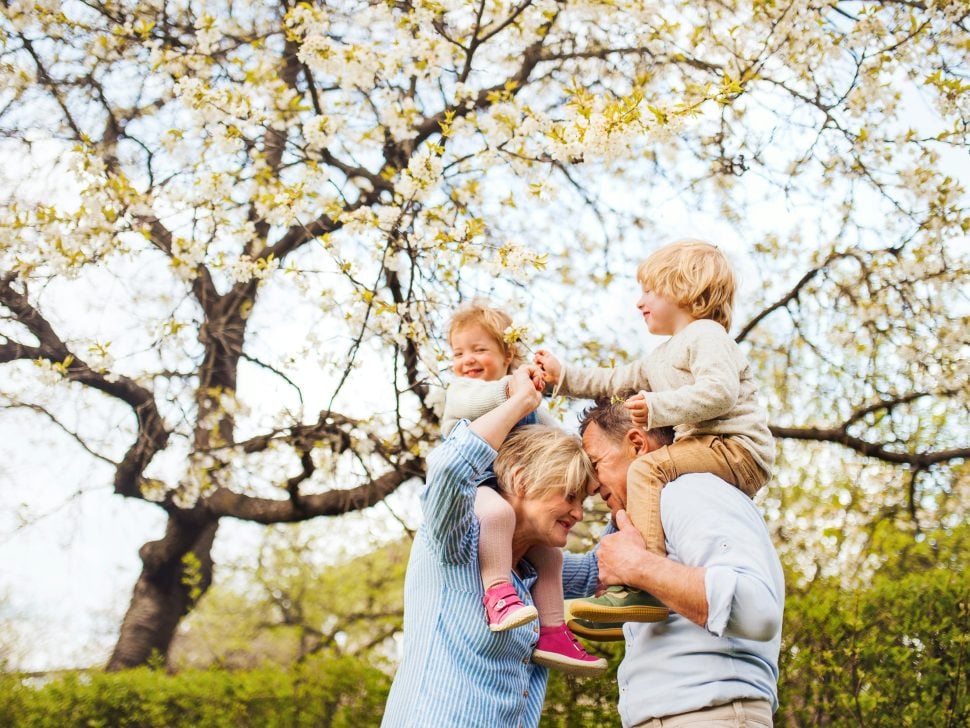
Article - Kylee Shepherd (Ma Wisdom)
Keeping the Village Strong: How Modern Grandparent Workshops Support Families
Becoming a parent doesn’t just change your life; it reshapes the whole family. As new mums navigate sleepless nights, identity shifts, and the steep learning curve of parenthood, their own parents are experiencing a transition too. That’s where modern grandparent workshops come in. Across Australia, these programs are helping families strengthen connection, understanding, and boundaries so that everyone, parents, grandparents, and babies, can thrive together.
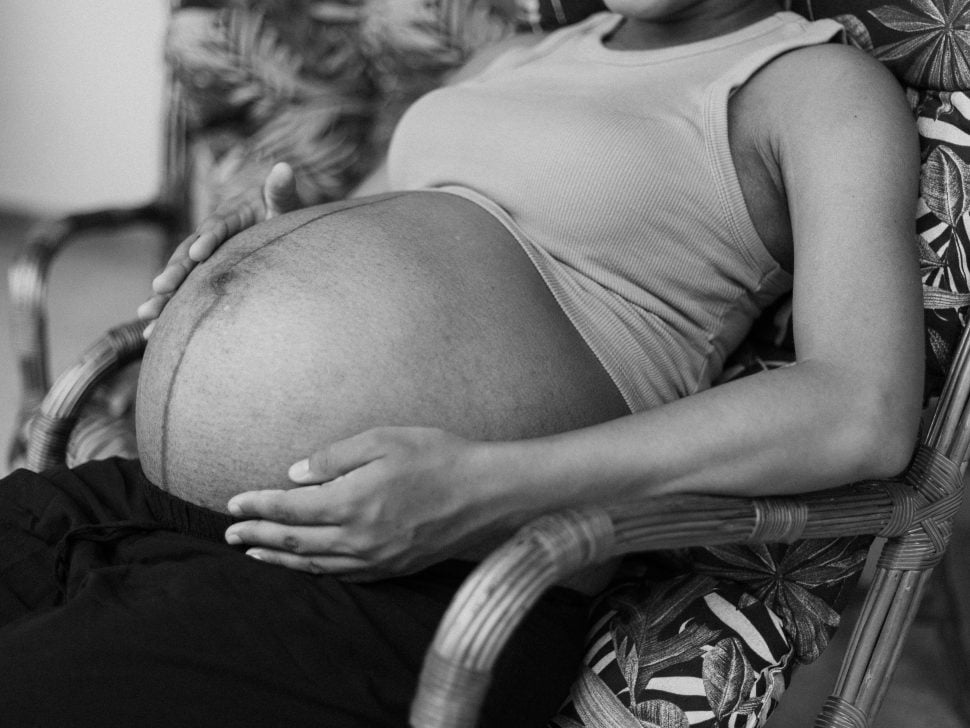
Article - Dr Mandy Godwin (Mums in Bloom)
Navigating the Emotional Side of Pregnancy and New Motherhood
The emotional side of pregnancy and new motherhood doesn’t come with a manual, but thankfully, Mandy Godwin, a perinatal psychologist in Australia and founder of Mums in Bloom, has created two free guides to help mums navigate this tender time and support their emotional wellbeing during pregnancy and postpartum.
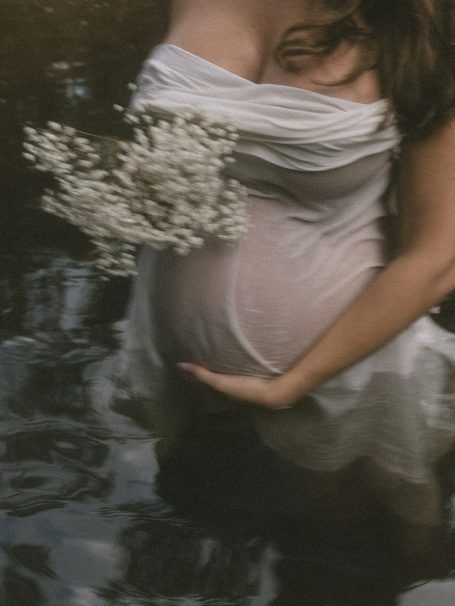
Let’s Gather Your Village
We have created a free Not Another Onesie eBook to help you gather the support you need to thrive once your baby comes along…
You may also be interested in...
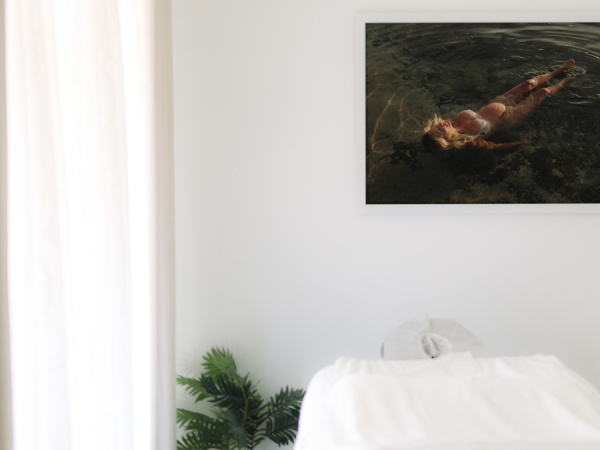
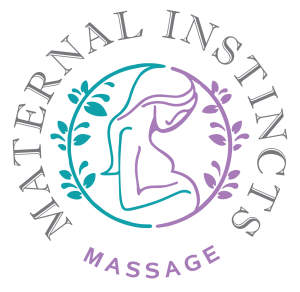
Maternal Instincts Massage
Maternal Instincts is an award winning pre and postnatal massage therapy service, that truly understands the specific treatments that expectant and new mothers need.
Our Postnatal treatments help to give relief to neck and shoulder tension that develops from feeding (breast or bottle) as well as back pain as a result of delivery or from the extra sitting to feed and the bending associated with newborns. We are also trained specifically in c-section scar massage to help aid in recovery.
Our treatments are fantastic at helping mums gain some much-needed rest and “me time”. However, babies are always welcome at these treatments and feeding/ skin to skin time can definitely be accommodated – especially if mum and bub don’t get a chance for much bonding at home.
At Maternal Instincts Massage we specialise in helping women regain their confidence and comfort through massage therapy and innovative treatments. Now, we’re excited to also offer you a non-invasive pelvic floor solution that can address the core issues of bladder leaks and sexual health: Emsella. Whether you’re dealing with postpartum incontinence or simply want to improve your pelvic health as you age, Emsella can help you regain control and feel empowered in your own body
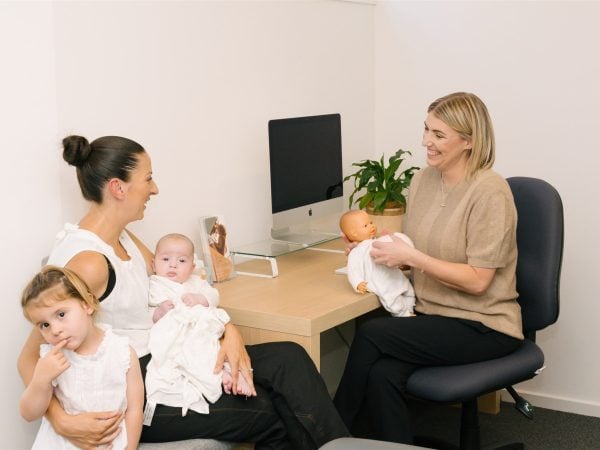
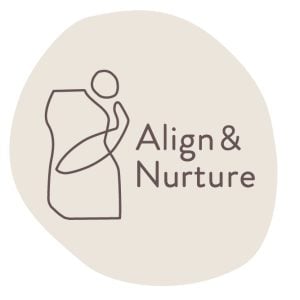
Align & Nurture
At Align & Nurture we pride ourselves on filling crucial gaps in maternal and paediatric care, to empower mothers and their little ones with the confidence and support they need to thrive.
Our passionate team of paediatric osteopaths and IBCLC lactation consultants offer a blend of unique services for your whole family!
Our osteopaths work with everyone from tiny newborns to teenagers, helping with feeding issues, developmental milestones, and growing children. We support mums through every stage – from pregnancy to postpartum and beyond.
Whether you need in-home lactation support, our unique combined paediatric osteopathy and infant feeding support, we are here to help support you with both breast and/or bottle feeding challenges.
We offer free workshops and events covering topics including tummy time and breastfeeding, to offer support for you and your little one and help you connect with other families in our community.
We are here to support you and your growing family through every precious milestone, from bump to baby and beyond.

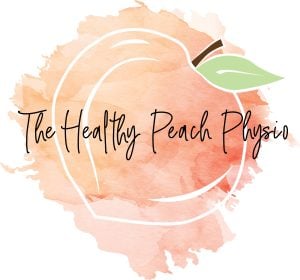
The Healthy Peach Physio
The Healthy Peach Physio is a Brisbane-based pelvic health physiotherapy clinic, home to a team of eight specialised physiotherapists. Founded by Marnie Poiner—Physiotherapist and Psychosexual Therapist—the clinic takes a holistic, individualised approach focussing on education, empowerment, and personalised care.
We support women through every life stage—from menarche, through pregnancy and postpartum, and well beyond; Treating a wide range of pelvic health concerns including bladder/bowel dysfunction, pelvic organ prolapse, pelvic pain, and sexual function concerns.
During pregnancy, we work closely with you to help prepare your body for birth. If you’re planning a vaginal birth, assessing pelvic floor function, muscle range of motion, and the effectiveness of your pushing technique—tailored to suit whichever birth position you prefer. Sessions will educate you on each stage of labour, equipping you with practical strategies to navigate the physical and emotional ups and downs. Our goal is to empower you with the knowledge and confidence to make informed decisions about your birthing journey.
If you’re planning a belly-birth or still deciding, we’ll also walk you through what to expect, how to prepare, and what recovery may look like post-abdominal surgery. No matter how your baby enters the world, we’ll help you understand what’s normal during recovery and when to seek support—so you can feel informed, safe, and cared for.
We also help manage the many physical changes that can arise during pregnancy, including bladder or bowel issues, constipation, vaginal heaviness, varicosities, and pelvic girdle or lower back pain.
Postpartum, we encourage you to visit us for both abdominal and pelvic floor assessments. Abdominal checks can take place as soon as you’re comfortable leaving the house, while pelvic floor assessments are typically recommended around six weeks postpartum. However, if you’re experiencing concerns earlier, it’s important to seek support sooner.
We also offer treatment for lactating breast conditions, including the management of blocked ducts, engorgement, and mastitis. These conditions can be painful and distressing and may impact your feeding journey. Our physiotherapists provide hands-on care and guidance to relieve symptoms, support healing, and help you continue breastfeeding comfortably and confidently.
As you consider returning to physical activity, we’ll guide you through a safe and progressive plan tailored to your body’s healing process and your personal goals.
At The Healthy Peach Physio, we’re committed to helping you feel confident, informed, and in control of your pelvic health—whatever chapter of life you’re in.
Learn about the support you didn't know you needed.
We have cherry picked the most useful resources for your fourth trimester so that you don't have to waste precious hours searching.
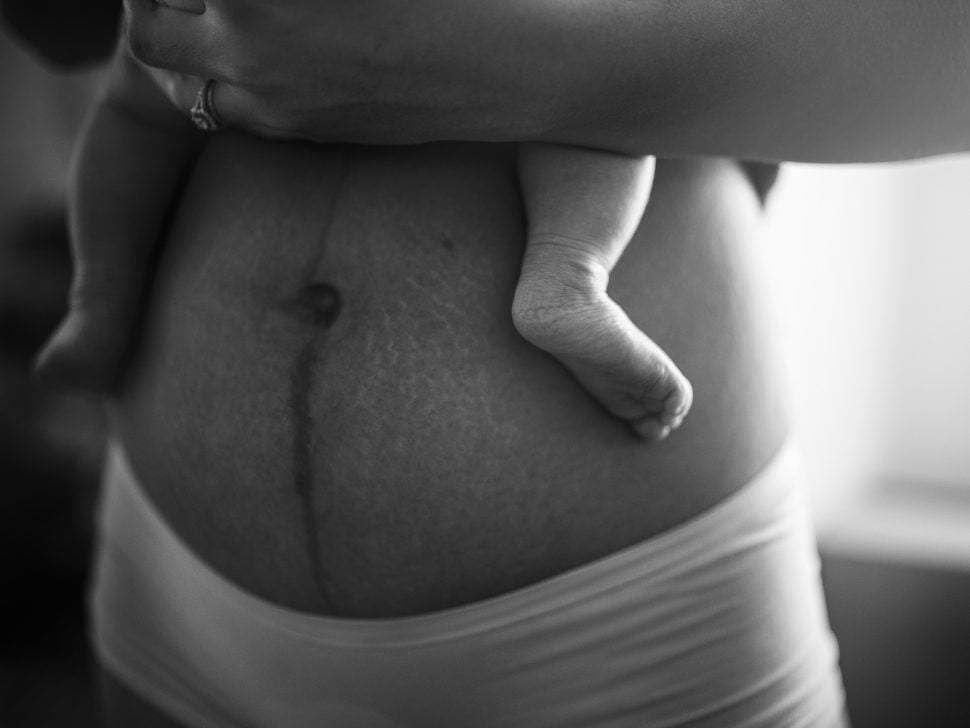
Article - Louise Barton + Elisha Wildblood (Not Another Onesie)
Not Sure What You Need After Baby Arrives? Start Here
The truth is, most mums aren’t told how to prepare for the fourth trimester, the raw, tender, and transformative time after birth. You might feel sore, sleep-deprived, disconnected, or emotionally all over the place. And that’s completely normal. But it doesn’t mean you have to go through it alone. This blog is your gentle starting point, a guide to the kinds of support you may need (and deserve) after baby arrives.
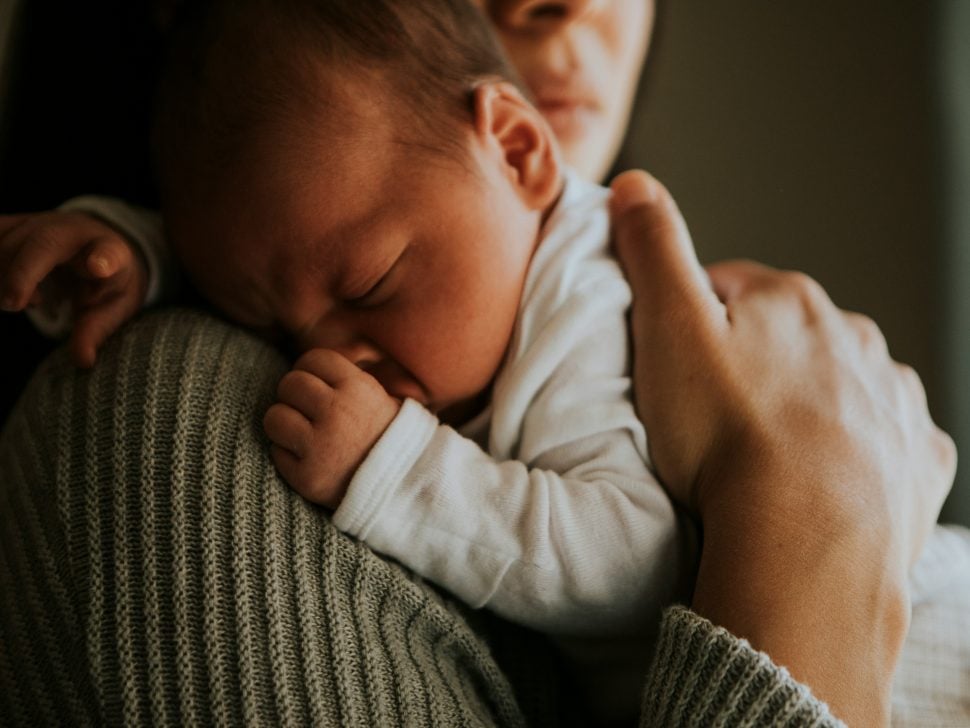
Article - Elisha Wildblood and Louise Barton (Not Another Onesie)
Beyond Baby Stuff: Gifting Support to New Mothers
At Not Another Onesie, we're passionate about gifting support services that improve life after birth for mamas everywhere. We believe new mothers need love, support, and nourishment more than baby stuff.

Article - Melissa Miceli (Motherscape)
Occupational Therapy for Mothers: Support for Postpartum Recovery and Matrescence
During the postpartum period, many women experience challenges in daily routines, self-care, and identity. Occupational Therapy (OT) for mothers offers practical and emotional support to help women navigate these changes, rebuild confidence, and find balance in everyday life.
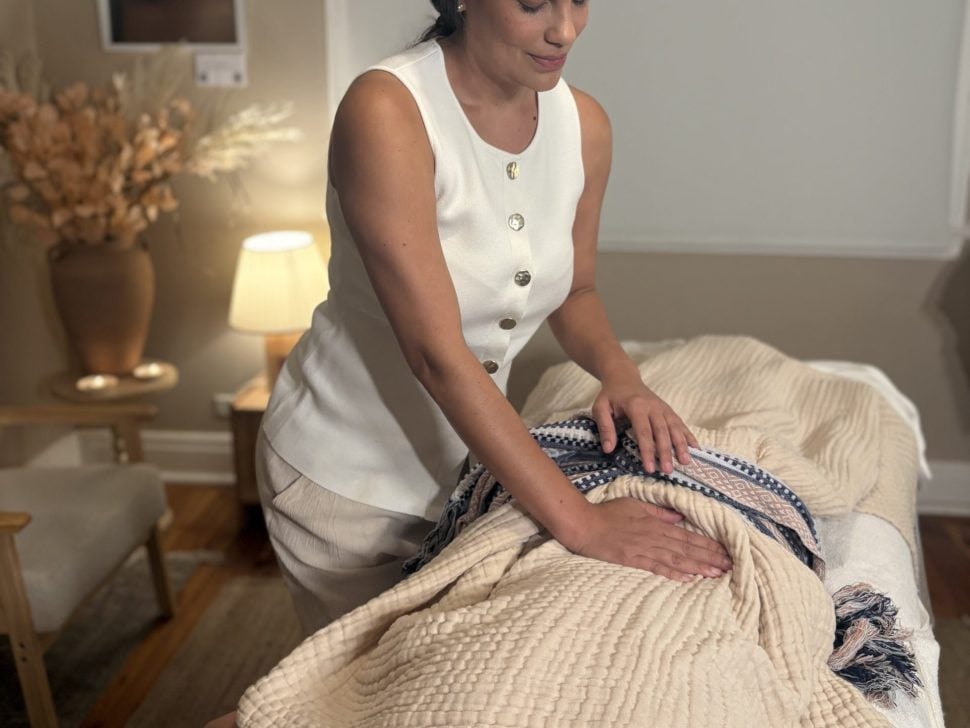
Article - Shaily Nadav (Kavanah Care)
A Sacred Space for Postpartum Recovery
In our ongoing series spotlighting the incredible services in our Not Another Onesie village, we spoke with the heart and hands behind Kavanah Care, a wellness sanctuary offering postpartum support and bodywork that feels like a warm exhale for mothers in their most tender chapter.
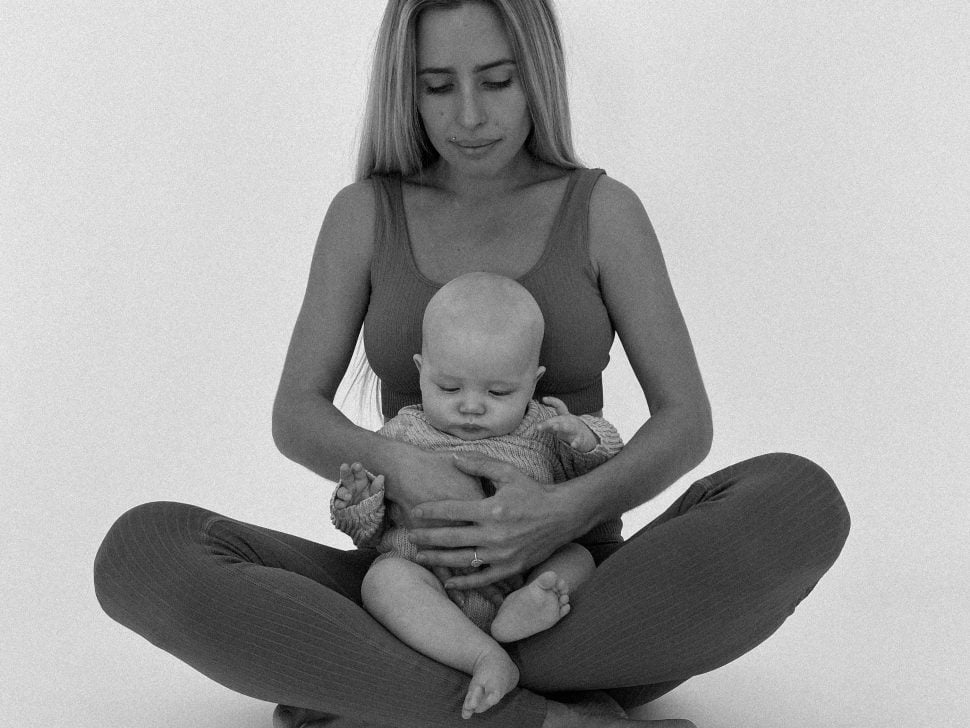
Article - Lauren Malcolm (Feels Pilates)
Is Pilates Safe During Pregnancy?
Pilates for pregnancy is an excellent way to stay active, improve strength, and keep your body in balance. Reformer Pilates provides a safe and effective workout for expectant mothers, with modifications and specialised props available for each stage of pregnancy to enhance your comfort and safety.

